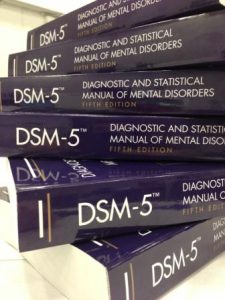One of the first things that struck me when I entered mental health services was how little interest staff took in me describing my experiences or how I felt. I couldn’t understand it, but workers only seemed to care if it had a bearing on their index of clinical symptoms.

Instead of helping me develop an understanding of what I was going through, I was provided with standard explanations. My eating disorders were about ‘control’ because, of course, all eating disorders are about control. Suicide attempts were either ‘serious’ or a ‘cry for help’ – the latter category being particularly problematic as I might have intended to die, but hadn’t planned it carefully enough or, especially early on, didn’t have the requisite knowledge for it to be effective.
Over time, I learned it can sometimes be easier all round to go along with proffered interpretations. ‘Yes, that’s right,’ I’ve told a doctor on more than one occasion while receiving stitches for self-harm, ‘it was for a sense of relief’. In reality it was more about proving to myself that I exist, or a carefully negotiated compromise with the voice in my head that wants me to kill myself.
Yet such questions are clearly not asked out of genuine enquiry, but for the purposes of risk assessment paperwork. Giving that answer meant I could avoid waiting all night to be ‘fully assessed’ by over-stretched duty workers, before being sent home in the early morning, exhausted, even more dispirited, having missed my medication and feeling even worse.
To be in so much distress yet so disillusioned about others’ ability to understand or help you is bad enough, but it feels even worse that there are such limited lenses through which your experience will be filtered. Anything which doesn’t fit this is disregarded as simply irrelevant and superfluous. This focus is simplistic, reductionist and incredibly frustrating. It doesn’t just lead to important aspects being overlooked (after 20 years in services, I’ve only just been diagnosed with ASD), but it can alienate you from your own experiences. There is no opportunity to interpret things for yourself, create any meaning out of them, explain them to yourself, or discuss them with another person on a human level. They’re the experts, not you; they must know better.
Recently, I’ve found myself being encouraged to write a book and share ‘my story’. The problem is that by now I feel I’ve lost control of the narrative. I wouldn’t even know where to start. Since my first contact with services in 2001, both mental health professionals and other people with significant roles in my life have narrated my life in their terms. There have been so many instances of this, by so many different people, that it’s become hard to know what my own story is, let alone find my own language to tell it.
Most of these narratives placed limits on what I could expect from life. For example, when I was 17 years old, I was told I’d never go back into education. A couple of years later, my professor told me that all female poets commit suicide. When I spoke about wanting to have children, my mental health worker’s first response was to ask: ‘is that realistic?’ Her question implied that it wasn’t, and therefore I shouldn’t. At various points too, people have invoked for me the idea of the ‘success story’ or the ‘triumph over adversity’ narrative in the ‘fight’ against mental health. This is just as limiting – if there’s a recurrence of problems, there’s the bonus dimension of failure.
I’ll keep working on ways to try and articulate my messy reality, if only to myself. I urge mental health professionals to take every opportunity they can to encourage people to describe their experiences for themselves, in their own words, without having to translate them into the terms of the mental health system. By doing so, you might just allow them to feel like a human being whose experience is valid, meaningful, and part of their own story – not yours.
This is a Sample Article from the Summer 2023 Issue of Asylum (Volume 30, No2). Subscribe to Asylum magazine.
